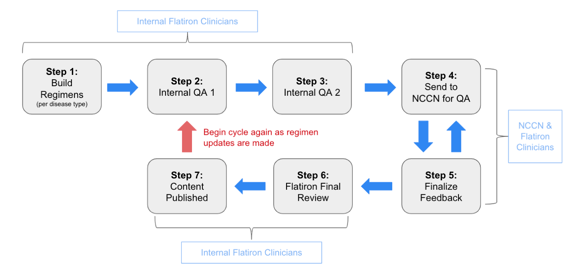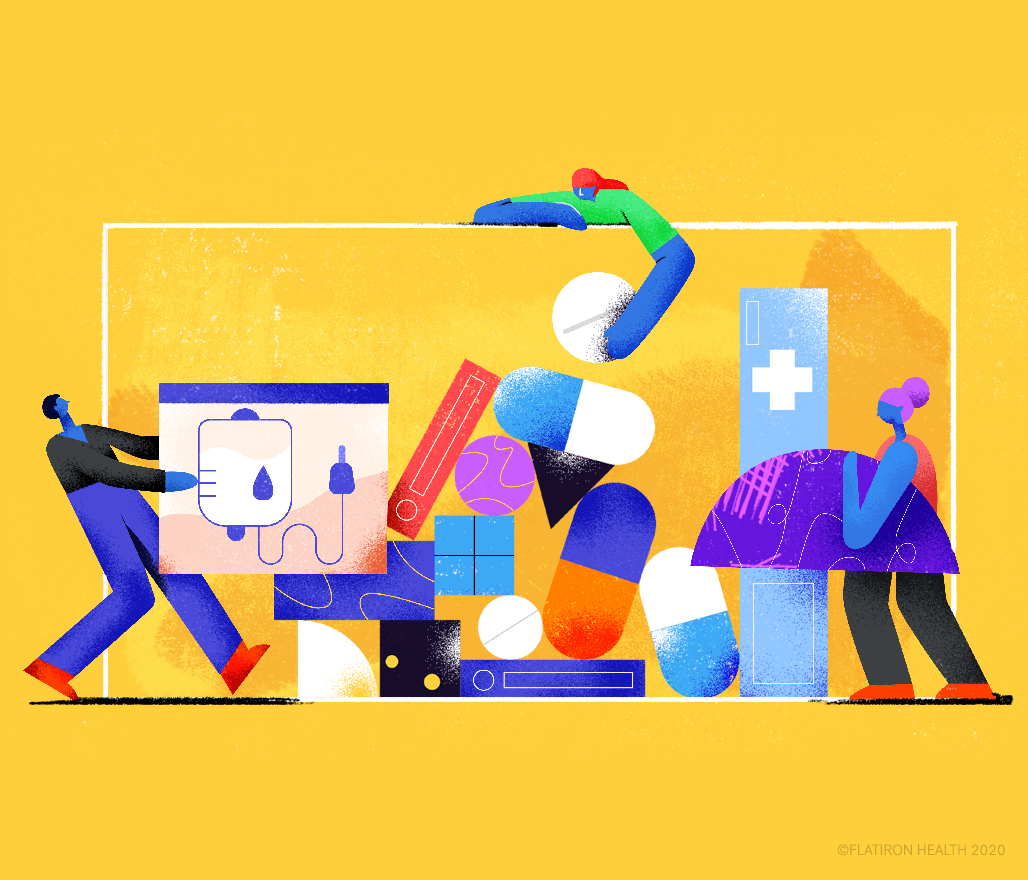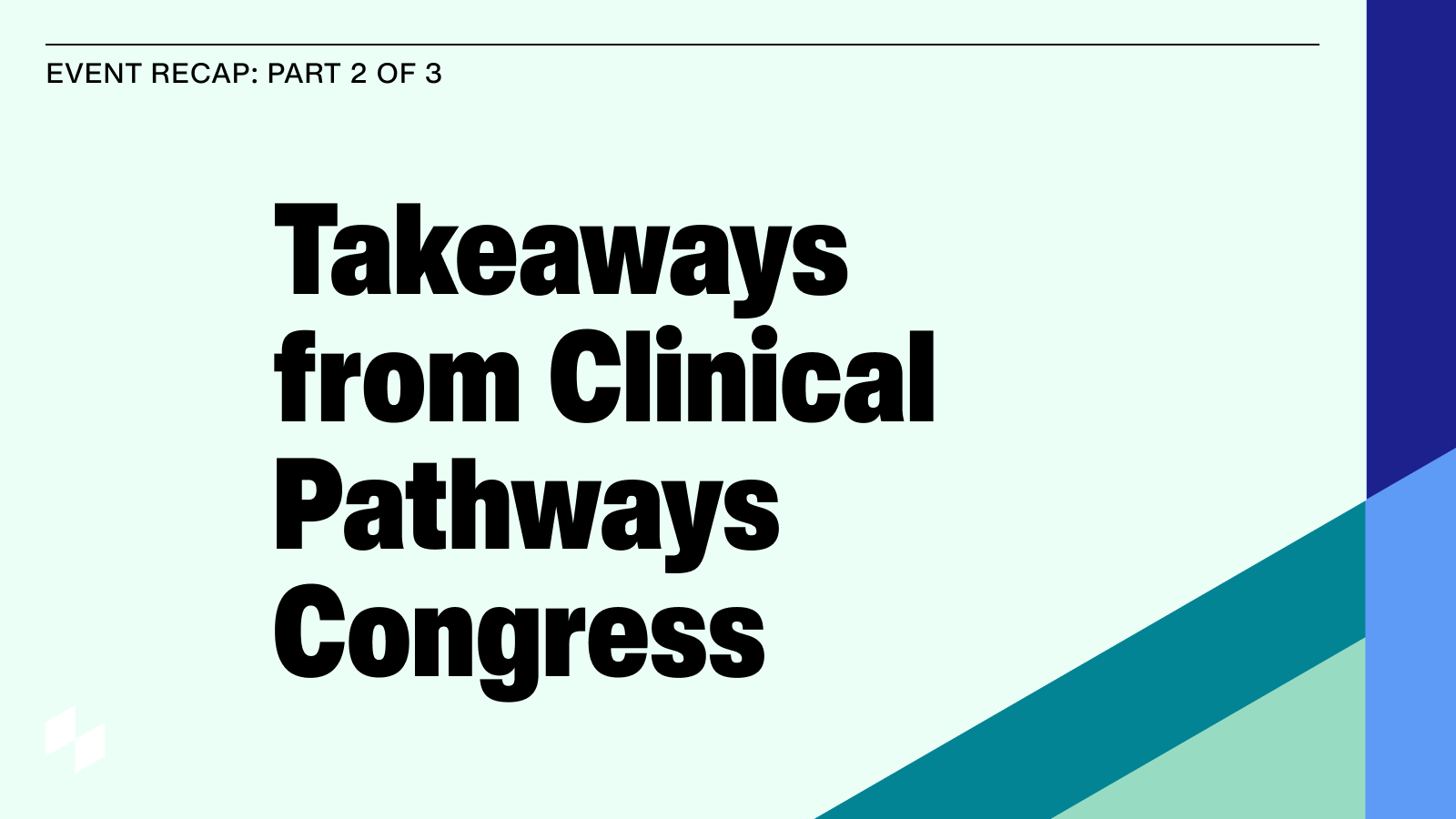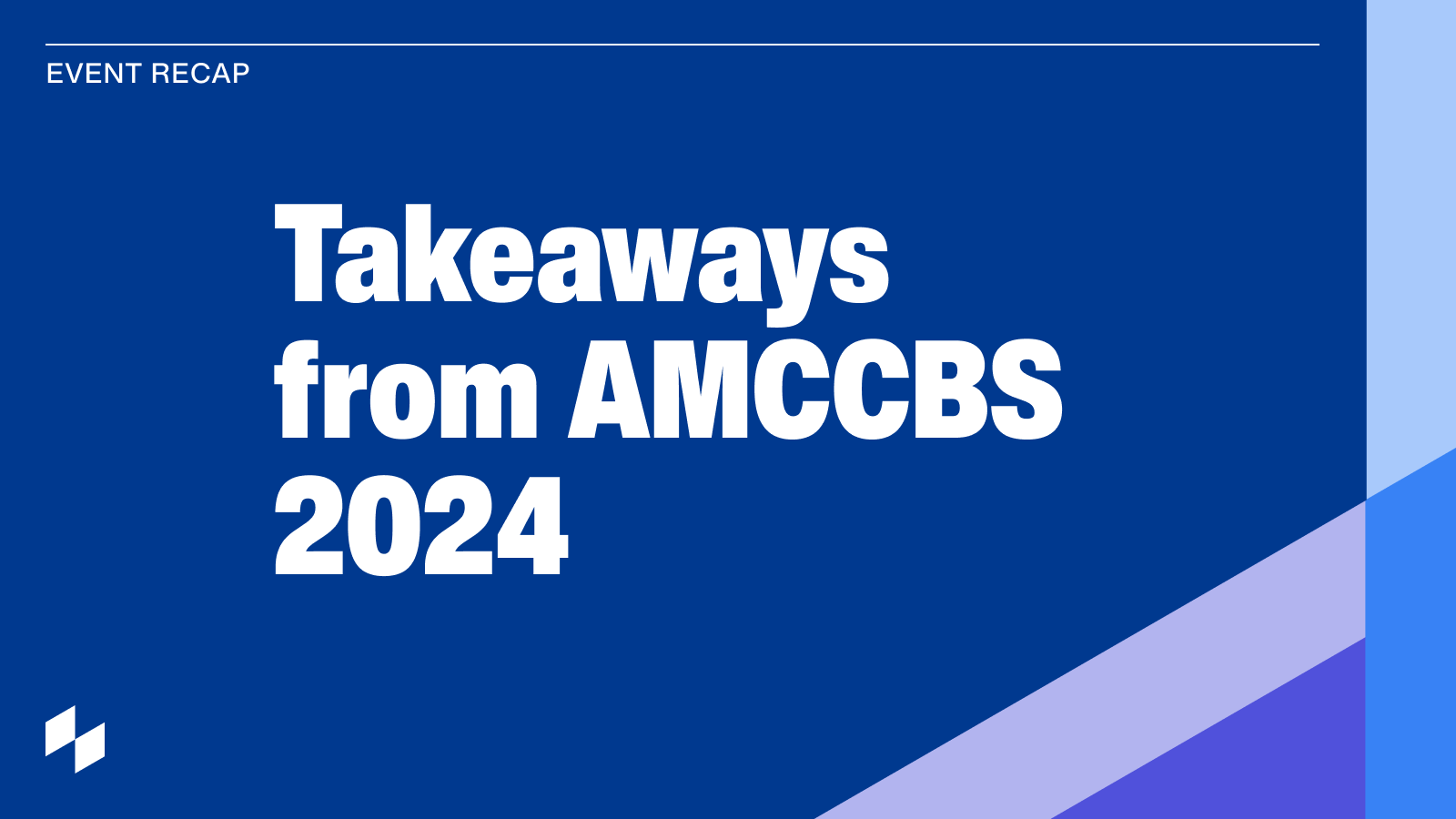A few years ago, prior to working at Flatiron, Jen joined the informatics team at a cancer center to embark on a project transitioning their paper chemotherapy orders to an electronic regimen library. A chemotherapy regimen is a prescribed course of medical treatment that defines which therapies should be used at what dosages and on what schedule. Regimens can also include other medications, lab tests and activities to ensure safe care. A practice's regimen library allows providers to prescribe treatment from a defined set of regimens for their patients instead of creating individual regimens each time, and helps standardize the care offered at the practice.
Jen remembers sitting in early meetings at the cancer center looking at a project timeline to complete the conversion from a paper-based regimen library to an electronic library within a few months, a year at most. They soon discovered that building out a regimen library was far more complex than anticipated, and they found themselves working past their established deadlines. Every provider had their own workflow and therapy preferences, making it difficult — and often impossible — to develop a standardized approach. Software limitations frequently forced them to spend days troubleshooting, and numerous team members including physicians, nurses and technical staff put in additional time outside of clinic hours to assist with decision making, QAing and testing. After endless meetings and months of work, they finally published a regimen library for their first disease. However, only two weeks later, an intravenous fluid shortage led the cancer center to update its premedication guidelines and they had to go back and update all of the regimens we'd just released.
Those who have been involved in building regimens can probably testify that the process is often frustrating, tedious, more complicated than you'd expect, and never truly "done." Even after the regimen library is up and ready for use, there are several factors such as treatment guideline changes, drug approvals and drug shortages that require ongoing maintenance of a constantly growing library.
Many of these frustrations point to why Flatiron has invested heavily in creating its own regimen library for practices to use in partnership with the National Comprehensive Cancer Network ® (NCCN). Flatiron-Managed Regimens are developed by a team of oncology pharmacists. This library of regimens consists of both regimens that are based on the NCCN Chemotherapy Order Templates (NCCN Templates) and custom Flatiron Regimens, built by Flatiron's content team in cases in which an NCCN Template is not yet available and a custom regimen is needed to supplement the gap. This ensures that the latest FDA approvals and evidence-based recommendations are always available.
Flatiron actively collaborates with NCCN to ensure Flatiron's regimen library meets the latest NCCN requirements. In fact, after the content team builds NCCN Regimens, they undergo two internal rounds of quality assurance and are then sent to NCCN for review, feedback and approval:  This partnership ensures that Flatiron's content offers the latest standard of care and meets the rigorous quality criteria of NCCN.
This partnership ensures that Flatiron's content offers the latest standard of care and meets the rigorous quality criteria of NCCN.
Chief Executive Officer, NCCN
We are pleased to work closely with Flatiron to facilitate health care providers in treating people with cancer according to the latest evidence and expert consensus. The NCCN Chemotherapy Order Templates help standardize patient care, reduce medication errors, and help anticipate and manage adverse events. The content comes directly from the NCCN Guidelines; the recognized standard for clinical direction and policy in cancer management and the most thorough and frequently-updated clinical practice guidelines available in any area of medicine. Flatiron's commitment to collaboration and accuracy makes them an excellent choice for utilizing HIT to better serve patients, caregivers, and providers.
Over the last year, we've expanded the team dedicated to building and maintaining these regimens and doubled down on our investments in this area.
To date, we've curated an expansive regimen library for OncoEMR users with over 1,700 regimens spanning more than 50 diseases which covers a vast majority of patients who are diagnosed with cancers. We're incredibly excited about the value it brings to our practices:
-
High-Quality: Our regimens undergo a stringent development process to ensure quality, accuracy and adherence to NCCN recommendations.
-
NCCN Concordant: With the growth of value-based programs, it has become critical for practices to demonstrate concordance with evidence-based guidelines in order to optimize payer reimbursement and long-term sustainability. Flatiron-Managed Regimens allow practices to demonstrate concordance with NCCN Clinical Practice Guidelines in Oncology (NCCN Guidelines).
-
Up-to-Date: The oncology landscape is constantly evolving. So far in 2020, the FDA has approved over ten novel drugs and numerous label expansions. The clinical content team at Flatiron routinely monitors for new FDA approvals and NCCN Guidelines updates to ensure that the latest advances are embedded within our Flatiron-Managed Regimens.
-
Low Maintenance: Flatiron's implementation team is available to support practices in migrating to Flatiron-Managed regimens. After the initial setup is complete, content updates are automatically pushed to practices on a monthly basis.
We are continuing to expand Flatiron-Managed Regimens with a number of projects underway, including integration with Flatiron Assist‚Ñ¢, our new clinical decision support tool built in collaboration with NCCN. We are excited to explore new ways we can leverage Flatiron-Managed Regimens to better serve our practices.
As pharmacists, we've seen firsthand how much time goes towards regimen maintenance, and how frustrating it can be when those regimens don't work the way you want. Every cancer center is familiar with building regimens, but most wish they didn't have to and even fewer are able to allocate the clinicians needed for the task. The Flatiron-Managed Regimen Library provides our practices with a solution to alleviate some of this burden and allows them to dedicate more time to patient care, knowing that this content is safe, reliable and evidence-based.



